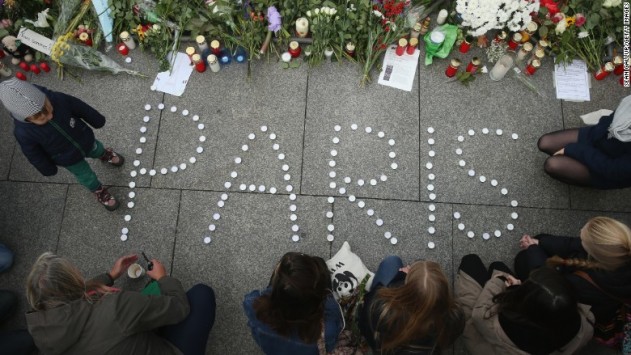By exposing kids to the world’s harsh realities, and showing them how they can help people who are suffering, children become empathetic and empowered.
I wasn’t a mother on 9/11, but I spent the day with children. I was teaching third grade in New York, and September 11, 2001, was our first day of school. As the news trickled in that morning, parents arrived early to pick up their children, and by the end of the day, only a handful remained in our care. After they were gone, I finally let my guard down and cried.
When school reopened a few days later, we were instructed to discuss what had happened with our students, but only in the broadest of terms. When difficult questions arose, we were to bounce them back to the parents, as we were uncertain how much detail each family had chosen to go into. We felt it was better to err on the side of saying too little than delve too deeply into the particulars of this strange and terrible new world.
Many years later, when my own daughter, then 9, asked me what had happened on 9/11, I had no one to bounce the question back to. And so I answered her as honestly as I could, telling her as much of the truth as I thought she could handle. Men flew airplanes into buildings so they could hurt as many people as possible. They killed themselves in the process.
But who can handle that?
This is the world we have given you, I thought again last Friday as the news came in from Paris. I held my phone to my ear, listening to the BBC while emptying the dishwasher, my three kids in the other room, oblivious for the moment. But the time would come when I would have to explain this to them, too. It always does.
For as much as I want to protect my children, want to turn off the news and hide the newspapers and not send them to school where other kids are bound to report some version of what has happened, I realize I don’t have that luxury. Because every time I think I’ve managed to shield them, the nastiness of the world finds a way to slip in. My son reads about Jerry Sandusky in the sports pages. My daughter hears about a school shooting from a classmate. My 6-year-old asks why he has lock down drills at school. My force field always has holes.
This isn’t necessarily a bad thing. In The Blessing of a Skinned Knee, Wendy Mogel writes that parents who go out of their way to protect kids from grief and sadness create children without a “sense of duty to others.” By exposing kids to the world’s harsh realities, she argues, and showing them how they can help people who are suffering, children become empathetic and empowered. And so, as hard as it might be, we must tell them the truth, that our world can be ugly and mean, that people live, people die, people hurt themselves and others.
I don’t force difficult information down my children’s throats. (My 12-year-old knows the rough outline of what happened in Paris, but I have not yet told my 10- or 6-year-old.) But when the time is right, I am honest with them, acknowledging my own fear and showing them that I don’t have all the answers. I tell them I will protect them as best as I can, but that part of being human is learning to face the horror in the world while embracing its beauty.
My mother died before my children were born, so they have grown up knowing that sometimes bad things happen: mothers die before their time, people get so sick even doctors can’t help them. This has always been a reality for them, an early lesson in loss, albeit on a small scale. It is a truth I would never conceal to protect them, just as I do not insulate them from all the losses people suffer, most more profound than mine.
I think this awareness has made them more empathetic, allowing them to consider me as someone who has suffered, yes, but who still gets up every day and enjoys all that is good in my life. Hopefully it will allow them to see the world in the same way.
Daisy Alpert Florin is a writer and mother of three. Her essays and stories have appeared in Brain, Child, Full Grown People, Halfway Down the Stairs, Kveller and Mamalode, among other publications. Read more at www.daisyflorin.com.
Related Links:

